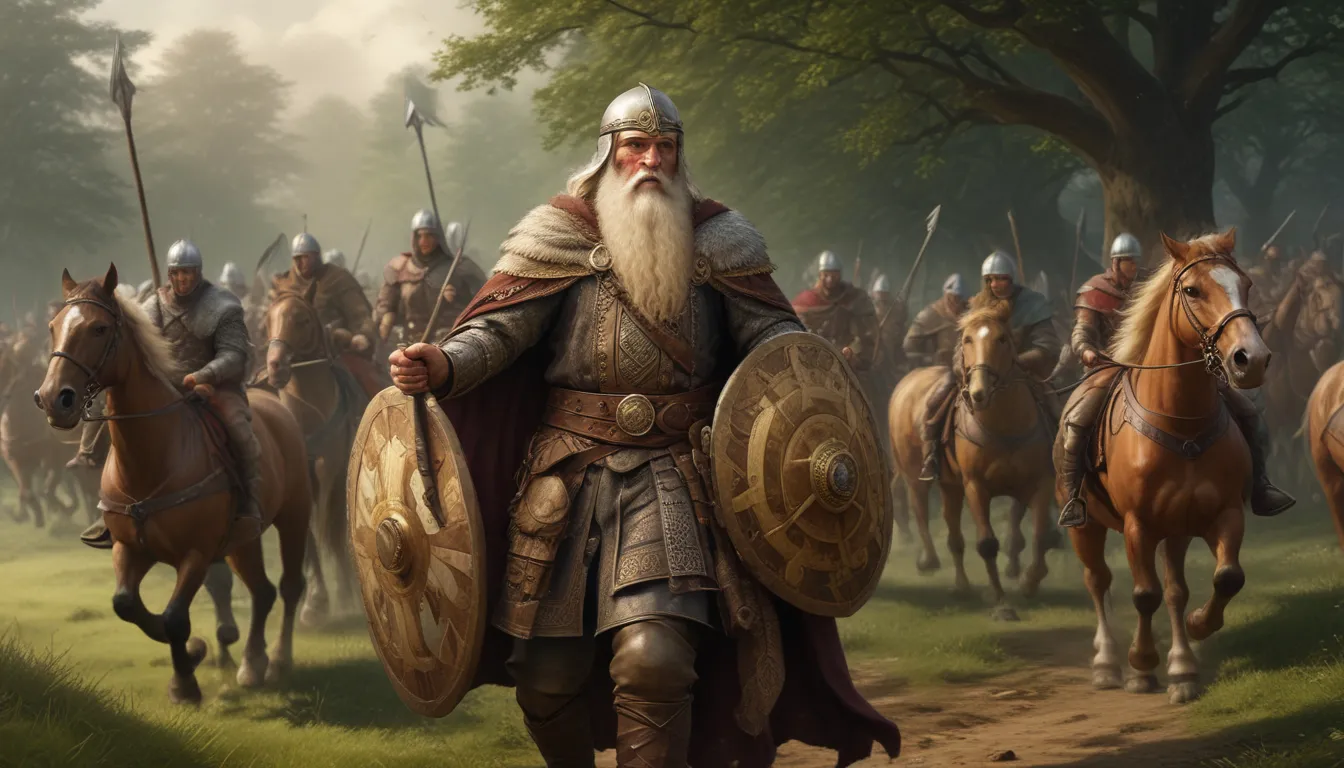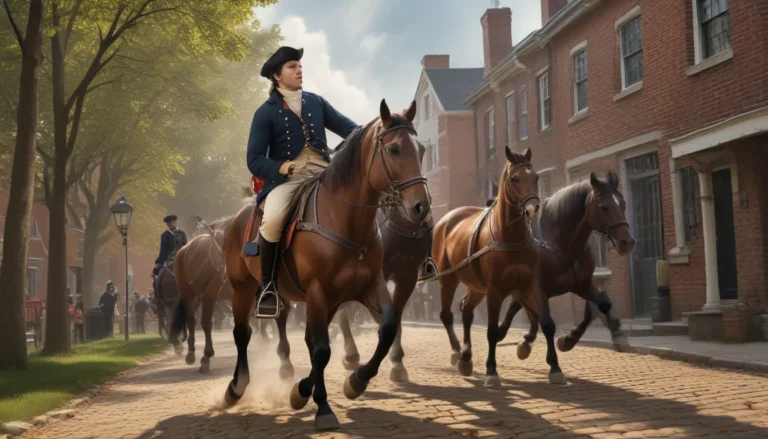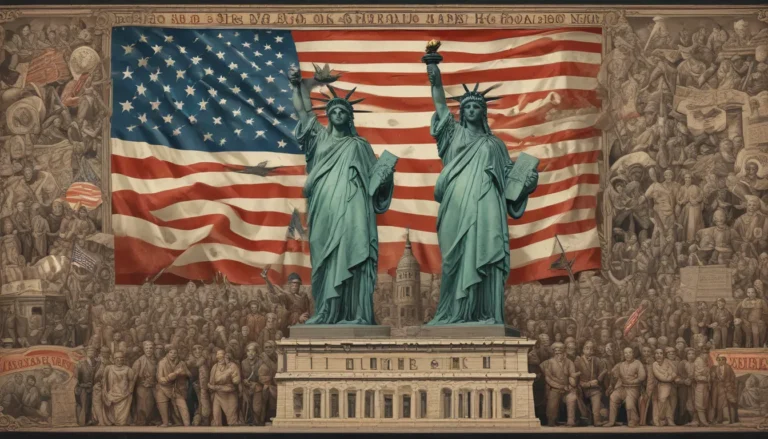The images in our articles may not match the content exactly. They are used to grab your attention, not to show the exact details in the text. The images complement the text but do not replace it.
Have you ever been curious about the Anglo-Saxons and their profound impact on history? These Germanic settlers have left an enduring legacy on modern culture, language, and legal systems, shaping the identity of what we now know as England. From their mysterious origins to their cultural contributions, the Anglo-Saxons were more than mere warriors – they were architects of a society that continues to influence us today. Join us on a journey through time as we unravel 22 fascinating facts about the Anglo-Saxons that will broaden your understanding of this captivating era. Are you ready to embark on an educational and entertaining adventure into the past? Let’s delve into the world of the Anglo-Saxons!
Unveiling the Legacy of the Anglo-Saxons
The Anglo-Saxons were a diverse group of settlers from Germany, Denmark, and the Netherlands who arrived in Britain during the 5th and 6th centuries. Bringing with them distinct cultures, languages, and traditions, these groups merged over time, laying the foundation for the English nation as we know it today.
The Dawn of Anglo-Saxon England
- The Anglo-Saxon era in England commenced in the 5th century after the Roman Empire’s retreat from Britain. This period marked a significant transformation in the country’s cultural and political landscape, lasting until the Norman Conquest in 1066.
- With the establishment of seven main kingdoms, known as the Heptarchy, including Northumbria, Mercia, and Wessex, the Anglo-Saxons forged distinct political entities each with its ruler and customs.
Language, Literacy, and Legend
- Old English, the language of the Anglo-Saxons, evolved from various Germanic dialects and served as the precursor to modern English. Despite its differences, Old English provides insights into the values, beliefs, and daily life of early English society.
- Celebrated for their rich literary tradition, the Anglo-Saxons produced masterpieces like “Beowulf,” offering a glimpse into their culture and storytelling prowess through epic tales of heroism and adventure.
Spiritual Beliefs and Practices
- Initially practitioners of paganism, the Anglo-Saxons worshipped a pantheon of gods and goddesses until Christianity began to take hold in the 7th century, becoming the dominant religion.
- Monasteries served as vital spiritual and cultural centers, contributing to the preservation of knowledge and the creation of written works that shaped Anglo-Saxon society.
Masterful Artistry and Craftsmanship
- Renowned for their intricate metalwork and jewelry, Anglo-Saxon craftsmanship exemplifies skill and beauty in pieces like the Sutton Hoo helmet and the Staffordshire Hoard.
- Illuminated manuscripts such as the Lindisfarne Gospels showcase the Anglo-Saxons’ artistic achievements through vibrant colors and elaborate designs that captivate the eye.
Daily Routines and Social Structures
- A hierarchical society with kings and nobles at the apex and slaves at the base, Anglo-Saxon life revolved around the labor of freemen and serfs who worked the land and served the elite.
- Homes made of wood with thatched roofs, small villages, and communal halls forming the social center depict the simplicity and cohesion of everyday Anglo-Saxon life.
Strategies of Warfare and Defense
- In a landscape rife with conflict, warfare was a constant in Anglo-Saxon society, necessitating the construction of fortified structures like burhs to protect against external threats.
- Armed with spears, shields, swords, and helmets, typical Anglo-Saxon warriors adapted their strategies and weaponry over time, particularly in response to Viking incursions.
The Enduring Influence of the Anglo-Saxons
- Despite the Norman Conquest’s upheaval, the Anglo-Saxon legacy permeated English culture, language, and legal systems, with numerous place names and personal names bearing Anglo-Saxon origins.
- Interest in Anglo-Saxon history persists today, as archaeological discoveries shed new light on this fascinating period, while figures like King Alfred the Great and historical documents like the Domesday Book continue to inspire intrigue.
Conclusion: Embracing the Tapestry of Anglo-Saxon History
Exploring the world of the Anglo-Saxons reveals a rich tapestry of history, culture, and influence that resonates through time. Their contributions to language, art, and societal structures continue to shape our modern understanding of Western civilization. By immersing ourselves in their achievements and struggles, we deepen our appreciation for the intricate threads of history woven into the fabric of the present. Let the legacy of the Anglo-Saxons serve as a reminder of the enduring impact of the past on our contemporary world.
Frequently Asked Questions
- What were the Anglo-Saxons known for? The Anglo-Saxons were celebrated for their craftsmanship, especially in metalwork and jewelry, as well as their contributions to English language and literature.
- How did the Anglo-Saxons arrive in Britain? Around the 5th century, settlers from Germany, Denmark, and the Netherlands migrated to Britain following the Roman Empire’s retreat, establishing their kingdoms.
- Did the Anglo-Saxons have unique customs? Yes, high-status individuals were buried in ships with their possessions, and feasts and storytelling were central to their culture.
- What kind of government did they have? Organized into kingdoms ruled by kings, Anglo-Saxon society featured a system of nobles and warriors known as “thegns,” maintaining law through fines and local customs.
- What were their religious beliefs? Initially practicing paganism, the Anglo-Saxons embraced Christianity, blending Christian and pagan practices for a time.
- What happened to the Anglo-Saxons? The Norman Conquest in 1066 marked the end of the Anglo-Saxon era, blending their culture with Norman influences.
- What is the legacy of the Anglo-Saxons today? Their legacy endures in the English language, legal systems, literature, art, and cultural practices that continue to influence modern society.
Our Commitment to Authenticity
Every fact and insight shared on our platform is contributed by real users like you, ensuring a diverse and credible collection of information. Our dedicated editors meticulously review each submission to guarantee accuracy, reliability, and engaging content. Trust in our commitment to quality and authenticity as you embark on your educational and enlightening journey through history and culture with us.






